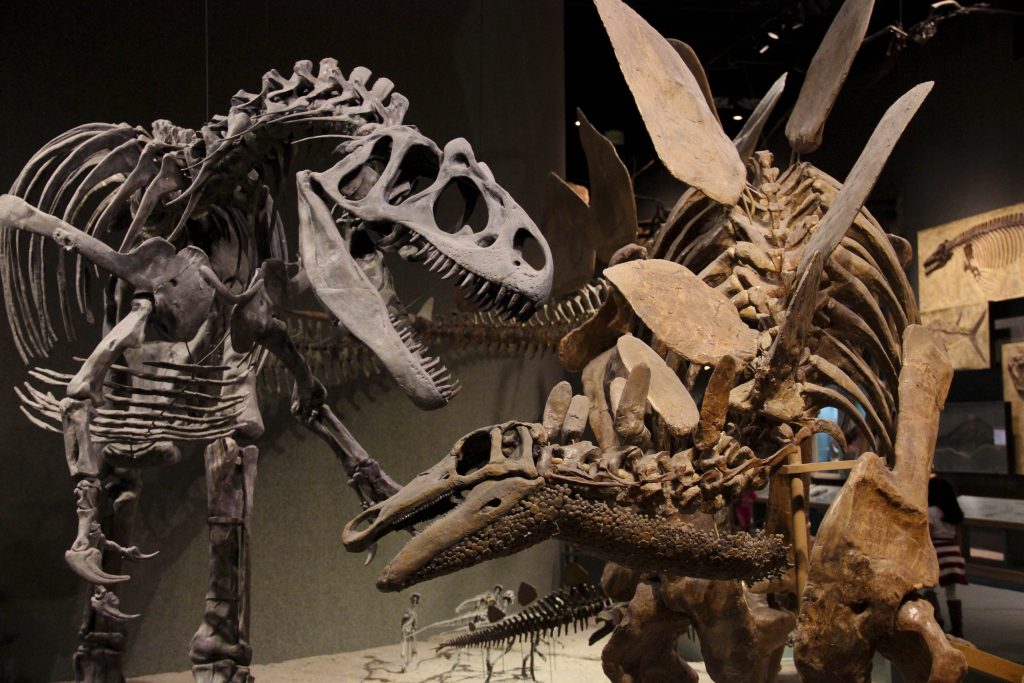Some people are worried that it's causing unique bits of history to be damaged or hidden from the public.
For further proof that geek chic is firmly on trend, look no further than the big uptick in the number of us buying bits of dinosaurs. eBay says 100 fossils and other remains are now sold on their platform every month in the UK, which is 42 percent more than this time last year. And because T-Rex teeth and triceratops skulls aren’t exactly something you can just crank out in a factory, increased demand for fossils and bones means their prices are also going way up. All of which is making some paleontologists worried.
That’s because when the demand and/or price for something increases, the sellers of that thing make lots of profit, which makes lots more people interested in becoming sellers. And when, as with dinosaur pieces, it’s difficult or expensive to become a bona fide seller, some people will resort to illegal or problematic things to make that money. Precious fossils and bones are now being dug up and smuggled away from their legal owner (often the country they were found in), as well as being damaged by inexperienced or uncaring traders.
Even when the sale is legit, some people are still angry that well-off individuals are taking dinosaur pieces away from scientists and museums, who often don’t have the budgets to outbid private collectors.Their argument is that dinosaur remains are part of our shared history and should be studied for new information and/or made available for everyone to enjoy and learn from. Indeed, the fact that museums are struggling to keep the bones in their buildings is a good example of why some people argue we need other ways than just money to describe how we collectively value things.
But there’s another side to the story. As many collectors loan pieces to museums and researchers, some see them as a way to help advance our knowledge of dinosaurs and a useful counterweight to the cutbacks in museum funding that has happened in countries like the UK. Private demand also funds the work of more professional bone-hunters; according to National Geographic, we’re currently discovering about 50 new dinosaur species every year. And because there are laws allowing rightful owners to repossess specimens that were taken illegally (Nicolas Cage had to surrender his dino skull to the Mongolian government), buyers have an incentive to only buy from reputable sellers, which cuts back on smuggling.
Read our explainer on: consumption.

